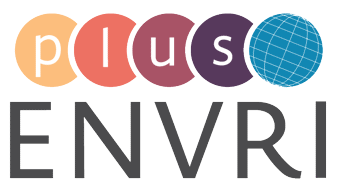T2 – Data For Science
Theme Leader: Zhiming Zhao (UvA)
Environmental Research infrastructures are expected to become important pillars not only for supporting their own communities, but also a) for inter-disciplinary research and b) for the European Earth Observation Program Copernicus as a contribution to the Global Earth Observation System of Systems (GEOSS). As such, it is very important that data-related activities of the ENVRIplus Research Infrastructures will be well integrated. This requires common policies, models and e-infrastructure to optimise technological implementation, define workflows, and ensure coordination, harmonisation, integration and interoperability of data, applications and other services between the ESFRI and other Research Infrastructure initiatives in the environment thematic area. The key is interoperating common metadata systems (utilising a richer metadata model as the ‘switchboard’ for interoperation with formal syntax and declared semantics). The metadata characterises data, services, users and ICT resources (including sensors and detectors). This approach provides an e-infrastructure that is virtualised for end-users but within which expert domain users and ICT experts can work to provide improved services as requirements evolve.
WP 5 – Reference model guided Research Infrastructure design
The objectives of this work package are:
1) To promote interoperability among Research Infrastructures by providing an ENVRI Reference Model, further developed to include the latest development insights from other successful Research Infrastructures,
2) To provide an ontological framework based on the ENVRI RM to describe the requirements and system architecture of Research Infrastructures, and to link these descriptions with the technologies provided by data and computing infrastructures,
3) To provide a design and implementation plan for common operations and abstract but customisable research environments among Research Infrastructures by engaging Research Infrastructure developers from different domains and using the ENVRI RM.
Contact WP5 leader Paola Grosso for more details
WP 6 – Research Infrastructure data identification and citation services
This work package will focus on implementing data tracing and citation functionalities in environmental Research Infrastructures and develop tools for the Research Infrastructures if they are not otherwise available. In close cooperation with the successful consortia in call EINFRA-7-2014, the overarching objective of this work package therefore is to improve the efficiency of data identification and citation by providing convenient, effective and interoperable identifier management and citation services.
Contact WP6 leader Alex Vermeulen for more details
WP 7 – Data processing and analysis
This work package will focus on the demands of Research Infrastructures for data processing that existing e-Infrastructures do not provide. The work package will follow the output from the e-Infrastructure calls (EINFRA-1,2,4,5,7,9) and the related engagement of Environmental Research Infrastructures, summarize the outcome and develop specific functionalities to develop further strategies for co-operation between Research Infrastructures and e-Infrastructures. The high level objectives of this work package therefore include:
1) Improving the efficiency of data processing by providing system-level optimisation to select, provision and use interoperable infrastructure services for data integration, processing and storage,
2) Improving the performance of the Research Infrastructures by providing system-level optimisation among data, processing, and underlying services, including their digital networks.
Contact WP7 leader Leonardo Candela for more details
WP 8 – Data curation and cataloguing
This work package will focus on providing data curation, interoperable data cataloguing and provenance tracking that existing tools provided by Research Infrastructures and e-Infrastructures do not offer. The high level objectives of this work package therefore include:
1) Improving the efficiency and quality of user experience for data curation by providing automatic but self-adaptable curation and semantic annotation services,
2) Improving catalogue interoperability among different Research Infrastructures,
3) Improving the efficiency of data provenance and tracing by providing convenient, effective and interoperable standards-based data provenance services.
Contact WP8 leader Keith Jeffery for more details
WP 9 – Service validation and deployment
Environmental Research Infrastructures are embedded in manifold regional and global Earth Observation systems and therefore need support to optimise interfaces, data and metadata streams, and general cooperation with these key data users. This work package therefore concludes the line of action on data deployment of the tools developed in the earlier work packages, acting to:
1) Improve the usability of developed services in their intended environment. The results will be demonstrated, validated and refined via use cases,
2) Improve the deployment of the developed results. Services and environment will be deployed in the research infrastructure, possibly via resources of the e-Infrastructure and data infrastructures.
Contact WP9 leader Yannick Legré for more details


